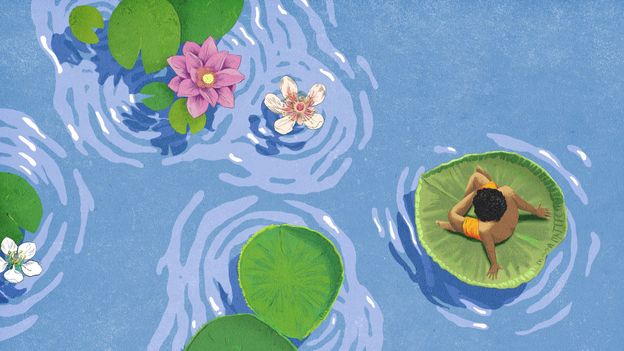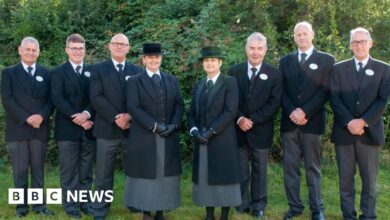Meet the prestigious film festival jury


Four acclaimed international film directors form this year’s LongShots festival jury. Together they will decide on the winner of the Jury Award, to be revealed on 1 September.
BBC Reel’s LongShots provides viewers with the all-inclusive film festival experience in the online space, featuring a suite of captivating films for streaming, and the opportunity to vote for their favourite to receive this year’s Audience Award.
All shortlisted films are available to watch for free on the BBC Reel website from 18 August. The audience can vote for their favourite, and a jury of prestigious film directors will award the Jury prize. The festival winners will be announced on 1 September.
 Cindy Lu
Cindy LuBao Nguyen is a Vietnamese-American filmmaker based in Los Angeles and Vietnam. His lauded portfolio of documentary features has appeared on PBS, HBO, Vice, The New York Times and at the Tribeca Film Festival and Berlinale. Some of his subjects have included the team behind American sketch comedy show Saturday Night Live, fallen US marine Julian Brennan, and martial artist Bruce Lee in the acclaimed film Be Water.
Born in Maryland, Nguyen grew up in a household of hard workers. His parents were refugees from the war in Vietnam, and owned a fabric store that they frequently attended to. Giang, his sister, helped to raise him in their stead, and often brought him to the cinema to see films by a diverse range of influential directors.
Much of Nguyen’s work revolves around Asian-Americans, a demographic that has over the past year endured an increase in aggravated attacks. “That’s given me a deeper perspective on what role I can play as a storyteller, and how I can make a better post-pandemic society.”
Film companies are often too caught up in capturing the most dramatic stories with the highest stakes, he says, something that stands against the ideas of community and solidarity with real people. In thinking about the current state of documentary cinema and the role it may play in the future, Nguyen says the tendency for filmmakers to remain “objective” is quickly becoming obsolete – and rightly so. “We can’t just be spectators to injustice and inequity anymore… We’re dealing with human beings, and it can’t always be a transaction.”
 Aditya Varma
Aditya VarmaNandita Das is a decorated Indian actress, filmmaker and author, known internationally for her dozens of award-winning film performances and celebrated directorial projects. She has twice served on the Cannes Film Festival jury, was granted the title of Knight of the Order of Arts in Letters in France, and was the first Indian person to be inducted into the International Women’s Forum Hall of Fame.
Das was born in Mumbai, and received her education in New Delhi before embarking on a career spanning more than 40 feature film roles, two directed feature-length films, and a host of global social and political activist efforts in the name of children’s rights and putting an end to violence against women.
After a year of uncertainty and struggle, Das believes documentary filmmaking is one of the key mediums through which people can begin to understand this newly changed world. Just as we conduct research and write books to catalogue our recent history, so too must the camera be used to capture and make sense of the problems we now face.
“Documentary cinema traditionally records life and people as they exist in different contexts, or captures specific events or happenings,” she says. “The post-pandemic world is throwing up so many different challenges that it has become imperative to not only document the stories all around us, but to also invoke empathy and keep truth alive.”
 Julia Banasik
Julia BanasikAnna Zamecka is an award-winning Polish documentary filmmaker. Her debut feature film Communion – which followed a teenaged girl forced into early maturity and responsibility as she cares for her troubled family in a town outside Warsaw – was shortlisted for the 91st Oscars, awarded the Grand Prix in Locarno in 2016 and the best documentary film at the European Film Awards the following year.
Today, Zamecka is most fascinated in exploring the relationship between mankind and animals, and finding ways to question humans’ place at the head of the hierarchy. As an artist, she believes it her duty to raise awareness toward the most significant issues facing the planet, and the issue that affects the most people around the world right now, she says, is climate change – a problem that points to the documentary filmmakers of the future as some of the best equipped to inspire change.
“That’s something that we as filmmakers and artists should be arm-in-arm with scientists about, we should be talking about it all the time,” she says. Facts and figures about the climate crisis can only go so far in making an emotional impact on the viewer. But by thrusting the audience into the heart of the issue through personal stories and gripping narrative, documentary films should transform beyond passive experiences into calls to action.
“We just need to watch less with our brains, more with our stomachs.”
 Jessica Beshir
Jessica BeshirJessica Beshir is a Mexican-Ethiopian director, producer and cinematographer, who received her education at the University of California, Los Angeles. Her latest film Faya Dayi – a portrait of Ethiopian culture and a stimulating plant that has become its biggest cash crop, khat – premiered at the 2021 Sundance Film Festival, and won the top prize at Visions du Réel.
Raised in the Ethiopian city of Harar, Beshir did not always have filmmaking ambitions. For much of her childhood, she believed she would follow in her father’s footsteps, and become a doctor. But when she moved to Mexico, leaving behind an area of war and conflict, she no longer felt the need to practice medicine. From the very beginnings of her time studying film, she has made it her mission to focus her work on the issues facing Ethiopians.
Beshir sees documentary cinema as an interactive medium, a way to connect with others by forging a meaningful, personal understanding of their lives and circumstances. Looking ahead, as the genre continues to change, she hopes filmmakers do everything they can to facilitate this kind of two-way relationship between subject and viewer – to encourage the unique opportunities to learn and listen that only documentary films can provide.
LongShots was created by Anna Bressanin, BBC Reel editor in the US; BBC Reel producers Ana Catalá, Brandon Karl Drenon, Alba Jaramillo and Camelia Sadeghzadeh.
Love film and TV? Join BBC Culture Film and TV Club on Facebook, a comhttps://www.nytimes.com/2021/08/12/business/media/nyt-newsletters.htmlmunity for cinephiles all over the world.
Source link





